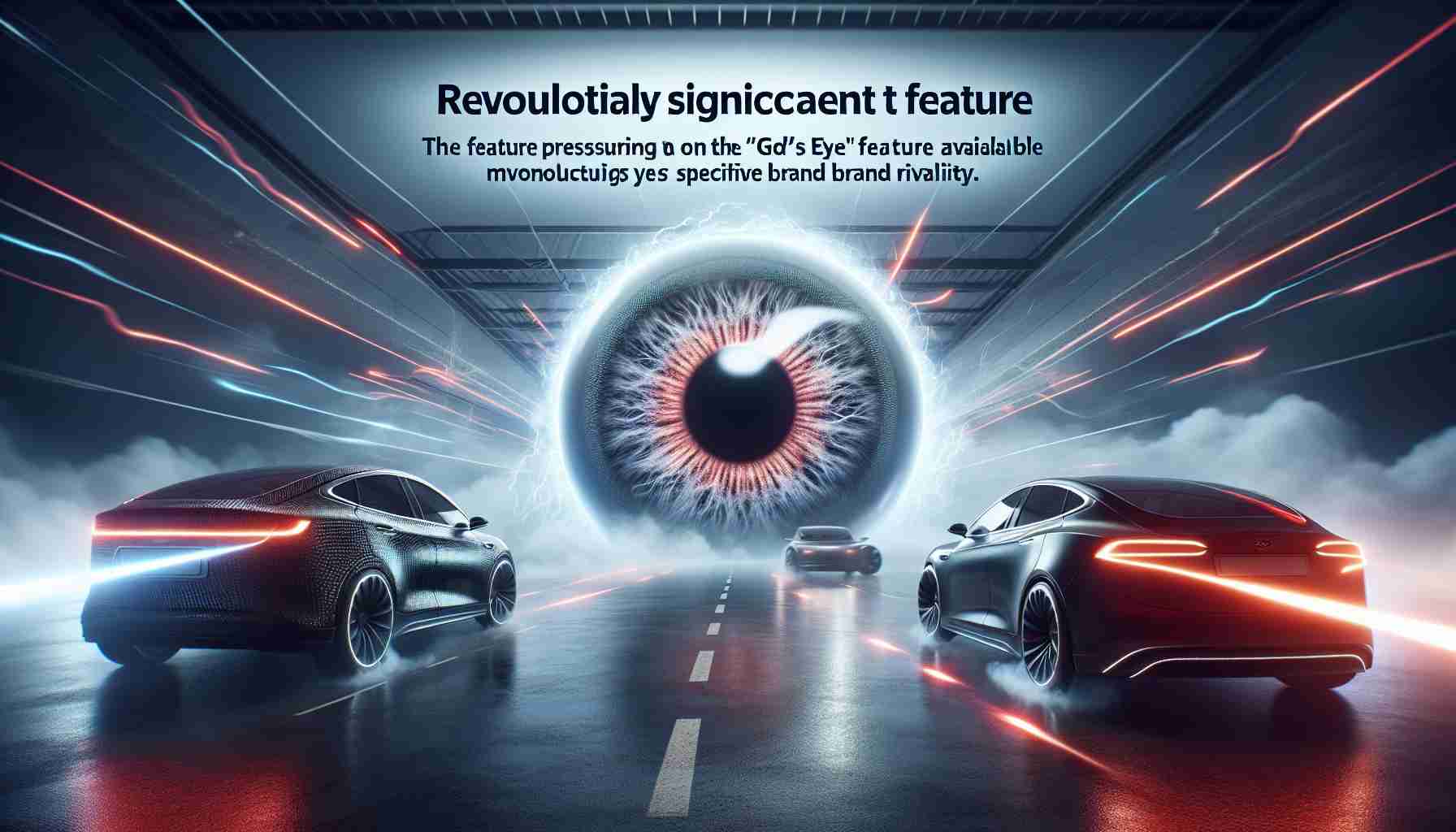- BYD introduces “God’s Eye” technology across all models, democratizing advanced driving features.
- Standard features now include remote parking and autonomous road overtaking, even in sub-$10,000 cars.
- This move spurred BYD’s stock to rise by 4%, while Tesla’s stock decreased by 2%.
- BYD’s initiative may prompt rivals like Tesla to reconsider their pricing for autonomous driving.
- Industry experts note potential impacts on global markets but point out challenges for Chinese automakers in the U.S. and Europe.
- Despite potential disruption, Tesla’s dominant position in the U.S. market is currently secure.
In a bold shift poised to jolt the auto industry, Chinese automaker BYD is unleashing its cutting-edge “God’s Eye” technology across its entire vehicle lineup, including budget-friendly models like the Seagull hatchback, retailing for under $10,000. This move aims to democratize advanced driving technology by offering features such as remote parking via smartphones and autonomous road overtaking for free. As a result, BYD’s stock soared by 4%, while Tesla’s slipped by 2%.
Until now, these high-tech features were reserved for BYD’s premium models, but the automaker’s founder, Wang Chaunfu, is driven by a vision to bring autonomous driving to the masses. His recent announcement sparked speculation about the seismic impact on the market, with industry leaders predicting significant shifts.
Sustainability expert Teymour Bourial commented that BYD’s latest expansion could force competitors like Tesla to re-evaluate their pricing strategy for self-driving solutions. He noted that with the commoditization of ADAS (Advanced Driver-Assistance Systems), paying extra for Tesla’s full self-driving model could become less attractive to consumers.
However, the ripple effect might be muted across the Atlantic. Bourial cautioned that, despite the breakthrough, Chinese automakers face hurdles in America and Europe amid increasing protectionism. Meanwhile, automotive designer Jason Castriota recognized BYD’s strategy as a market disruptor but assured Tesla that its leading position in the U.S., with nearly half of all EV sales, remains unthreatened for now.
BYD’s bold step underscores a pivotal moment in automotive history, signaling a future where cutting-edge technology becomes both accessible and standard.
Revolutionizing the Auto Industry: BYD’s Game-Changing “God’s Eye” Tech Embarks on a Mass Market Odyssey
BYD’s “God’s Eye” Technology: Who Wins and Who Loses?
What exactly is BYD’s “God’s Eye” technology, and how does it impact the market?
BYD’s “God’s Eye” technology is an advanced driver-assistance system (ADAS) that incorporates features like remote parking via smartphones and autonomous road overtaking. This technology aims to democratize access to sophisticated driving aids, historically limited to luxury vehicles. By offering these features in budget-friendly models, including the Seagull hatchback priced under $10,000, BYD is setting new industry standards and challenging competitors to rethink their pricing and technology strategies.
Pros and Cons of BYD’s Strategy:
Pros:
– Affordability: By integrating advanced technology in lower-cost models, BYD makes autonomous driving accessible to a broader audience.
– Market Disruption: This move could push competitors, such as Tesla, to lower their prices or enhance their offerings.
– Increased Market Share: By making high-tech features standard, BYD could attract more customers and boost its market position globally.
Cons:
– Potential Quality Concerns: There might be concerns about the performance and reliability of such technology in budget models.
– International Challenges: Chinese automakers, including BYD, might face hurdles penetrating markets in the U.S. and Europe due to protectionist policies.
Market Forecast: Is BYD Setting a New Trend?
Experts predict this approach could lead to a significant shift in how consumers perceive the value of ADAS features. By commoditizing these features, BYD might influence major players to reconsider their pricing strategies, potentially reshaping the market landscape.
Reviews and Controversies
The initial response to BYD’s announcement has been a mix of excitement and skepticism. Enthusiasts praise the move for promoting technological inclusivity, while critics remain cautious about its implementation quality and the readiness of mass consumers to adapt to such technology.
Innovation and Predictions
BYD’s strategy might spark a wave of innovation across the auto industry, as automakers explore new ways to integrate cutting-edge technology while keeping costs down. Predictions suggest this could lead to an era of affordable autonomous vehicles within the next decade.
Security Aspects and Sustainability
While advancing in technology, securing data and ensuring privacy remain significant considerations for BYD. Investments in cybersecurity are expected to rise as the company rolls out these features. Additionally, sustainability efforts continue to be a focal point, particularly in transitioning towards environmentally friendly vehicles.
Conclusion: The Road Ahead
BYD’s decision to make “God’s Eye” technology available across its lineup is a bold move that could redefine industry standards and consumer expectations. The ripple effect of this decision might be felt worldwide, prompting discussions on the future of affordable tech in the automotive sector.
For further exploration of automotive innovations, visit: Automotive News, Auto Express.
This shift in strategy has the potential to bring about significant changes, offering both challenges and opportunities for automakers around the globe.



















